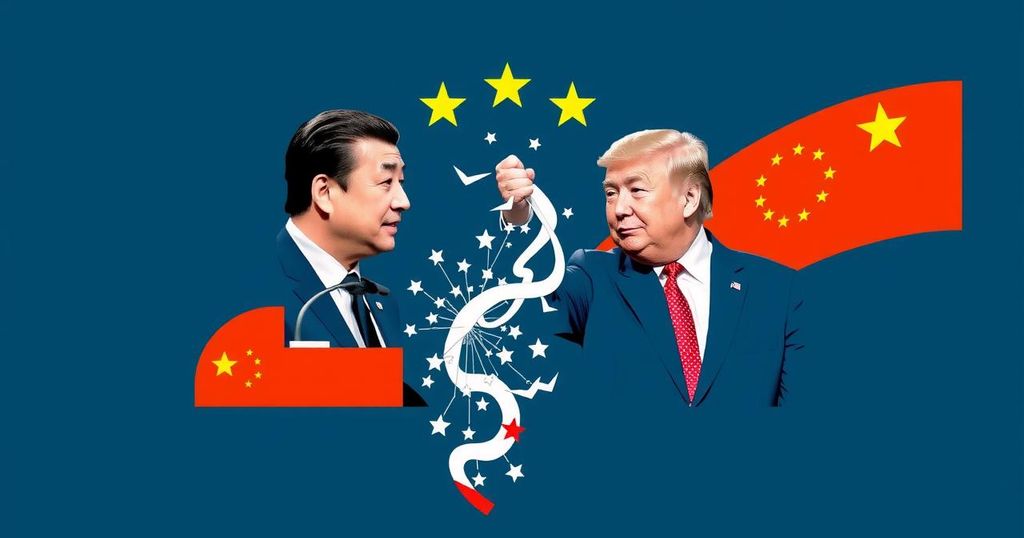As America awaits election results, Chinese state media highlights U.S. political polarization and potential unrest. Reports emphasize social dysfunction and portray the election as a reflection of deep divides. Observers in China express indifference to election outcomes, predicting continued U.S. efforts to constrain China’s global influence.
As the United States awaits the results of a highly contested election, Chinese state media has seized the opportunity to highlight perceived political divisions and potential electoral unrest within its rival democratic power. Under President Xi Jinping’s authoritarian regime, Beijing has increasingly criticized the U.S. political system, asserting that the electoral process reflects deep societal fractures and dysfunction. In a series of reports, state media such as the Global Times warned about potential chaos surrounding the election, emphasizing the unrest rather than the peaceful participation of millions of voters. Reports from state broadcaster CCTV focused on heightened security measures in Washington, including board-up stores and increased police presence, to underline the expectation of violence or turmoil. Commentaries portrayed the event as a potential harbinger of social discord rather than a celebration of democratic values. On social media platforms within China, commentary regarding the election showcased a blend of humor and skepticism, with some suggesting that the U.S. is so divided that it may as well split into two nations. Despite this focus, many Chinese citizens expressed a sense of indifference towards the election outcome, believing that the trajectory of U.S.-China relations would remain unchanged regardless of who occupies the Oval Office. The consensus among Chinese observers suggests that both candidates, whether it be President Biden or any alternative, will continue a policy of containment against China’s rise. Under both administrations, the U.S. has maintained a firm stance on trade issues and attempted to reduce China’s influence in various sectors.
The relationship between China and the United States has been fraught with tension, particularly in the context of trade, security, and geopolitical influence. Under the leadership of Xi Jinping, China has experienced tension with the U.S. following criticisms of its authoritarian governance. The U.S. has imposed tariffs on Chinese imports and ramped up scrutiny on Chinese tech companies, while the Biden administration has sought to stabilize the dialogue yet remains cautious of China’s ambitions. As the U.S. election unfolds, its implications for foreign policy, particularly regarding China, are being closely monitored by both governmental and public sectors in China.
In summary, Chinese state media project a narrative of instability and division within the United States as the nation embarks on a consequential election. This portrayal not only critiques the American political system but also reinforces Beijing’s stance on its own governance. Regardless of the election outcome, both the American and Chinese perspectives affirm that the political landscape and strained relations will persist, with underlying sentiments of skepticism from the Chinese populace concerning future diplomatic engagements.
Original Source: www.cnn.com






